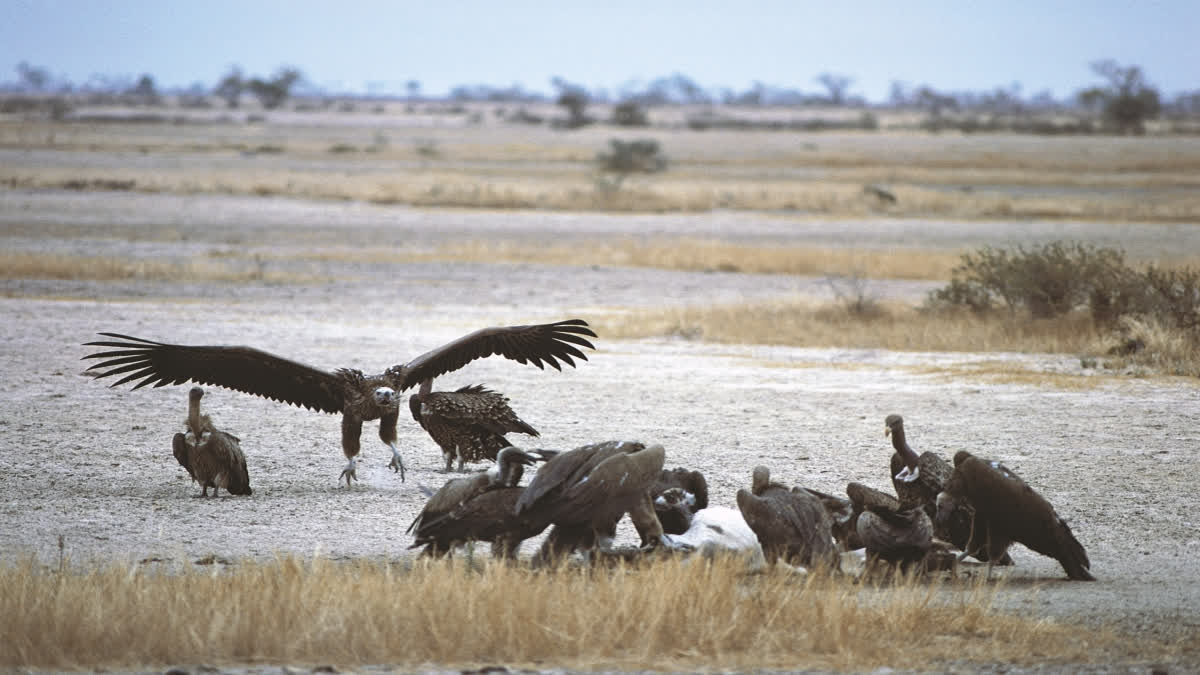Hyderabad:Vultures have an unfairly bad reputation. Associated with death and greed, many believe vultures to be cruel, dirty, and ugly creatures. The truth is that these incredible birds are the unsung heroes of the natural world. They are the only land-dwelling obligate scavengers, meaning that carrion is the cornerstone of their diet, and with this title comes some crucial ecological services, such as mitigating the spread of disease, protecting human and economic health, and slowing climate change.
International Vulture Awareness Day
The first Saturday in September each year is International Vulture Awareness Day. This day is intended to raise awareness around the most imperiled group of birds in the world all while celebrating their importance within our ecosystems.
The International Vulture Awareness Day began in South Africa and the United Kingdom. The first IVAD was observed in September 2009. The aim of International Vulture Awareness Day is for each participating organisation to carry out their own activities that highlight vulture conservation and awareness.
Why are vultures important to the ecosystem?
When vulture populations are doing well, all of us benefit. Vultures provide free ecosystem services, which are the contributions that ecosystems or wildlife make to human well-being.
Vultures are obligate scavengers that play a crucial role in maintaining ecosystem services such as nutrient recycling, removal of soil and water contaminants, and regulating the spread of diseases. Griffon vultures, for instance, consume large amounts of carrion derived from animal carcasses, supporting the transfer of energy through food webs. Their presence can help limit the transmission of diseases by controlling the populations of other facultative scavengers such as feral dogs.
Recent studies have shown that vultures provide an efficient, cost-effective, and environmentally beneficial carcass disposal service that is valued by livestock farmers. Their ability to rapidly consume livestock carcasses can significantly reduce greenhouse gas emissions and economic costs arising from the collection and transport of carcasses to processing plants by vehicles.
Vultures also provide cultural and spiritual services dating back thousands of years, as well as recreational services in the form of ecotourism, particularly for bird-watchers and photographers. Viewing vultures in their natural habitat has significant potential value, and ecotourism around vulture breeding areas and feeding sites can provide important sources of local income.
The Cinereous Vulture is an important species for a number of reasons. This magnificent bird of prey plays a vital role in maintaining the ecological balance of its habitat and is also an indicator species for the health of its ecosystem.
Fascinating facts about Vultures
- Vultures are relatively silent as they lack a syrinx so they can only hiss, growl, and snarl
- They are predominantly scavengers but will occasionally kill small animals that are sick or dying. However, they will not eat a carcass that is more than a few days old as it become putrid
- Bald heads help radiate excess heat away from their bodies and keep rotting flesh from soiling feathers
- Vultures do not suffer from food poisoning because they have very acidic stomach acids with a pH of almost zero; these acids actually stop the spread of disease
- Their primary flying style is soaring which allows them to travel great distances expending very little energy
- A group of vultures is called a committee, venue or volt. In flight, a group of vultures is a kettle and when feeding at a carcass, the group is referred to as a wake
- To keep cool, vultures urinate on their legs and feet; this also kills bacteria or parasites and helps to keep the birds healthy
- Vultures are more closely related to storks than to any other bird of prey.
